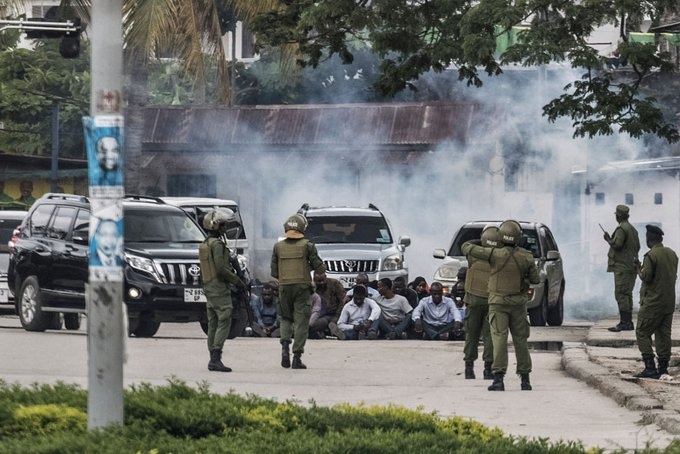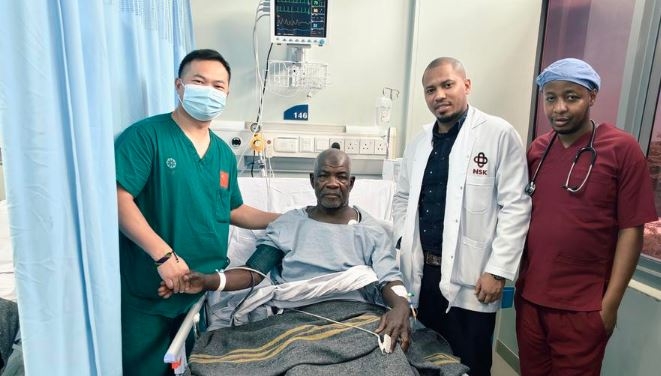With new HIV infections being reported among young adults and teenagers, the National Syndemic Diseases Control Council has kicked off a campaign to create awareness against the disease in Murang’a county.
A report released by the council last year showed new infections are dominant among Kenyans aged below 29 years, while most people living with HIV are older adults, many of whom might have been infected at a younger age.
Women and girls comprise 64 per cent of the 1,437,267 people living with HIV in the country.
Murang’a has 22,000 people living with HIV, out of whom about 2,000 are yet to be put on antiretroviral drugs.
On Wednesday, NSDCC met Kangema residents at Kanyenya-ini grounds in a renewed drive to eradicate new infections.
Caroline Kinoti, the head of county support at NSDCC, said about 10 teenage girls seek antenatal care in Murang’a everyday, translating to about 3,600 every year.
Most of these teens do not resume education after delivering as their lives are altered by motherhood.
“It is through you that we will reach out to parents and ensure they take the girls back to school even after they become mothers,” she said, noting that nationally, about 700 teen mothers visit antenatal clinics daily.
Resuming education can help teen mothers avoid getting pregnant again, as schools help create awareness and even ensure they continue learning up to tertiary or university level.
“We have established that many girls who discontinue their education after Class Eight fall pregnant soon after and can acquire HIV,” she added.
Kinoti said one of the objectives of the campaign is to bring on board champions who will help create awareness about the Triple Threat that includes gender based violence, teenage pregnancies and new HIV infections.
She appealed to parents to provide guidance to their children in regards to the three threats, to help them make informed decisions and protect themselves.
This, she said, is especially vital with the accessibility of social media that exposes children to a myriad of things that may cause them confusion.
The government has committed to diagnose, treat and achieve viral suppression for at least 95 per cent of the people living with HIV by next year, under the Kenya AIDS Strategic Framework II (2020/2021 -2024/2025).
County operations officer Douglas Bosire said NDSCC is partnering with the Council of Population and Development and the Department of Gender to eradicate the triple threats.
Bosire said Nyumba Kumi elders have the capacity to reach families and ensure arising cases are appropriately handled.
Mwangangi Mwania, who represented the Ministry of Interior, said all administrators are champions of the Triple Threats campaign.
The ministry, he said, has helped save many girls from early marriages and ensured the prosecution of numerous culprits of GBV and those responsible for teen pregnancies.
“Our role is to light the fire while the champions fan it and ensure it takes hold in the grassroots. My appeal is to parents to ensure they talk to their children and leaders to support this fight,” he said.
Mwania however expressed concerns over the refusal by some families to testify against culprits, that many times allows them to walk scot free.
“If somebody commits such an offence and is let off the hook, they can be tempted to do it over and over again. Don’t fall into the trap of solving the cases at the chief’s office.”
He urged the champions to make use of local forums to create awareness on the campaign, especially churches and communal gatherings.
According to the Kenya Health Demographic Survey, 20 per cent of men aged between 25 and 49 years had their first sexual encounter before age 15, compared with 15 per cent among women in the same age group.
Approximately half of women of the same age gave birth for the first time before the age of 21, with women in rural areas giving birth two years earlier.
Further, teenage pregnancy declines with a higher level of education, from 38 per cent for women with no education to five per cent for women with more than secondary education.
It also declines as household wealth increases, from 21 per cent in the lowest wealth quintile to seven per cent in the highest wealth quintile.
About 15 per cent of adolescent women aged 15 to 19 years have been pregnant with 12 per cent having given birth, one per cent experiencing pregnancy loss and three per cent being pregnant with their first child.












